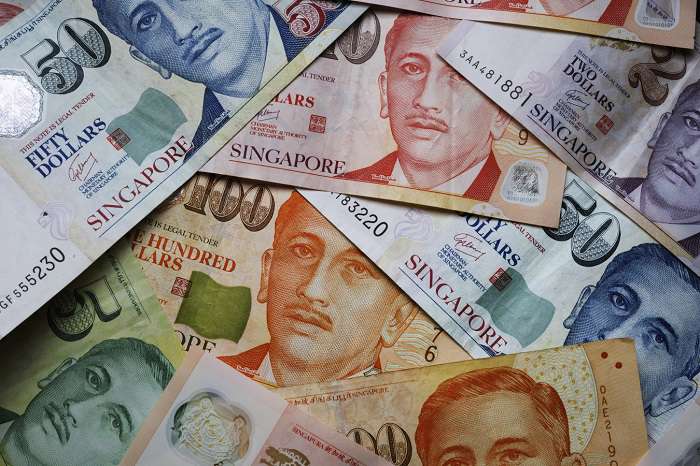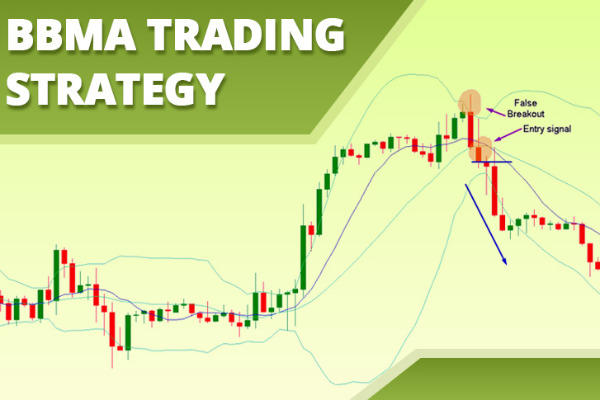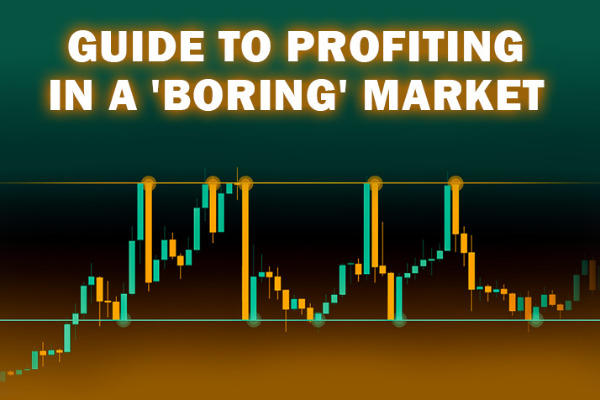Trading on exotic pairs such as USD/SGD is a great way to look for opportunities from high volatility. However, there are some factors that come into consideration.

Most traders prefer to trade major currencies as they tend to have more liquidity. However, a more adventurous trader might be tempted to try trading exotic pairs instead. Unlike major pairs, exotic pairs tend to be more challenging. They usually have less liquidity, lack market depth, and can be extremely volatile. Originally, exotic pairs consist of a major currency and a currency from developing countries.
If there are so many challenges, why do a lot of traders want to trade exotic pairs? Actually, there are plenty of benefits to gain from exotic pairs. Because of the growing economies, exotic currencies might make great leaps upward. Another reason is that the interest rates in developing countries are usually higher than those in developed nations. This gap is proven to be beneficial for carry trades.
One of the best pairs to start your journey with exotic currency trading is USD/SGD or US Dollar to Singapore Dollar. In fact, it is currently the world's 10th most traded forex pair.
Contents
Singapore Dollar as a Currency
To understand what makes trading USD/SGD the best choice, you need to understand the Singapore economy and the history of its currency first. SGD is the currency of the island state of Singapore. Right now, the currency is issued and monitored by the Monetary Authority of Singapore. The SGD pegged its Dollar to the British Pound Sterling until the early 1970s, then switch to the US Dollar for a short period of time. However, from 1985 onwards, the Singapore Dollar floated within an undisclosed bandwidth, closely monitored by the Monetary Authority of Singapore (MAS). The reason is to protect the currency against imported inflations and ensure their exports remain competitive.
Economy-wise, Singapore ranks in the world's top five financial centers. Singapore's economy depends heavily on its exports including consumer electronics, IT products, pharmaceuticals, and financial services. Their free-market economy operates in an open and corruption-free environment with stable prices and GDP. In terms of trading itself, Singapore has a pretty active trading community. In fact, it has plenty of successful traders.
Currency Correlations
There is no currency that moves independently. So, what happens in one currency might have implications for the others. Traders who are interested in trading USD/SGD should not only look at the pair's correlations but also at each currency's connections with other pairs as well. For example, major pairs such as EUR/USD, GBP/USD, and AUD/USD are all positively correlated, therefore any change in those pairs might affect the USD. Meanwhile, SGD is positively correlated with CNY. Any change in the Chinese Yuan market tends to be mirrored by SGD.
Why USD/SGD?
Like other exotic pairs, USD/SGD offers high volatility. While it does have some risk, a high volatile pair means there is plenty of opportunities to get huge returns on small trades. Furthermore, the most traded currency pair in the world, USD/SGD is a relatively popular pair in the market despite being an exotic pair. That means the pair has relatively large trade volumes for an exotic pair, thus ensuring better liquidity among its peers.
See Also:
Another essential matter in trading is to be able to access a whole lot of recourses to support your analysis. Again, as a popular exotic pair, it is easy to find market resources and information regarding USD/SGD. This pair is also available in a number of well-known brokers as Singapore itself is notable for its status as a financial hub in the Southeast Asian region.
Tips For Trading USD/SGD
Despite its competitive edge, trading USD/SGD can be tricky for a trader who has little to no experience regarding exotic pairs. Here are some tips to ensure that your USD/SGD trading runs smoothly.
1. Timing
Understanding the right timing for trading certain pairs is very crucial to ensure success. While there is no 'best' time to trade, there are certain time windows that tend to be more favorable. The optimum time to trade forex is when the market is most active. Usually, the spreads tend to be narrow, which means less money goes to the market makers and more money goes directly to traders. For USD/SGD, the prime time would be between 17:00 GMT and 18:00 GMT since that is when most trading happens on the Singapore and Sydney exchanges.
See Also:
2. Risk Management
Risk management strategy is very important for any pair, including USD/SGD. Normally, traders would apply the 1% rule in which traders should never invest more than 1% of their account balance on any given trade. In doing so, they can minimize losses and increase the chance for long-term trading.
3. Find a Good Broker
Because not all brokers provide exotic pairs, it is important that traders look for a good brokerage with a wide variety of assets. Some things to consider when choosing the right broker are low spread (on exotic pairs), regulations, and a good trading platform. IC Markets is one of the best brokers providing USD/SGD. The ASIC-regulated broker allows traders to enjoy USD/SGD spreads as low as 0.2 pips with an average of 0.85 pips in their raw account. Even better, traders can choose to trade this pair on popular trading platforms such as MT4, MT5, and cTraders.
IC Markets is an online forex broker operating under the company of International Capital Markets Pty Ltd. Traders under the Australian jurisdiction are provided with the trading service of IC Markets AU that is headquartered in Australia and licensed by the Australian Securities and Investments Commission (ASIC).
On the other hand, non-Australian traders who open an account in this broker are registered under IC Markets SEY that is based in Seychelles, and regulated under the Seychelles Financial Services Authority (SFSA). The dual operation is a result of the relatively new rules from ASIC that prohibit their regulated broker to offer trading services outside Australia.
Classified as an ECN broker, IC Markets provide clients with MetaTrader 4, MetaTrader 5, cTrader as platform trading options. This broker also follows market trends to include Cryptocurrencies as one of its products, enriching its already wide selection of trading assets that include Currencies, Indices, Metals, Energies, Softs, Stocks, as well as Bonds.
The minimum deposit in IC Markets is in the middle range compared to other ASIC-regulated brokers, as it reaches $200 for every client. Market analysis materials are also prepared regularly for trading insights on IC Markets's official website, proving their competence to serve their traders with important contents created by market experts that work specifically for them.
For payment methods, IC Markets allows funding and withdrawal via wire transfer, credit card, PayPal, Skrill, Neteller, FasaPay, UnionPay, as well as Bitcoin via BitPay. The more interesting aspect from this broker is its multi-base currencies that include USD, AUD, EUR, GBP, SGD, NZD, JPY, CHF, HKD, and CAD.
As the trading technology in IC Markets is highly equipped with co-located servers and extremely low latency (especially on cTrader), the broker is widely known for its capability in hosting traders with the special needs for high-frequency trading as well as scalping.
To sum up, IC Markets is a fitting destination for active traders looking for a well-regulated broker. IC Markets is also flexible in terms of base currency and payment methods, signaling their commitment to welcome traders beyond their home country. As of late 2019, IC Markets provided their website in 18 international languages including English, Korean, Indonesian, French, Spanish, Italian, Malay, German, and Chinese.
The Bottom Line
Trading USD/SGD is a great way to start venturing into the exotic pair market. This pair has one of the best volume tradings among other exotic pairs, therefore there are more opportunities to enter the market. However, the high volatility might induce some risk for new traders. Traders who live in different time zones might face settlement risks as a result. That being said, it is important for traders to learn what factors play in the USD/SGD price dynamics. By preparing a good analysis, surely the risk can be mitigated.
Exotic pairs can be a great choice for a trader who knows exactly what to do. But not all traders can master this type of pair. Find out if this is the right choice in Are Exotic Pairs Always Bad for Traders?

 Dedicated FREE FOREX VPS
Dedicated FREE FOREX VPS Free FOREX Virtual Private Server
Free FOREX Virtual Private Server MT4 Demo Contest, Get $500
MT4 Demo Contest, Get $500 Sign Up for an Account, Claim 60% Deposit Bonus
Sign Up for an Account, Claim 60% Deposit Bonus Free MT4/MT5 VPS 2024
Free MT4/MT5 VPS 2024 Send E-mail and Get Free Merchandise
Send E-mail and Get Free Merchandise $1K Refer a Friend Bonus for Pepperstone Pro clients
$1K Refer a Friend Bonus for Pepperstone Pro clients Maximize Your Earnings with 100% Deposit bonus
Maximize Your Earnings with 100% Deposit bonus Trade to Win, $5,000 Monthly Demo Contest
Trade to Win, $5,000 Monthly Demo Contest Claim 30% + 15% Deposit Bonus from LiteFinance
Claim 30% + 15% Deposit Bonus from LiteFinance











